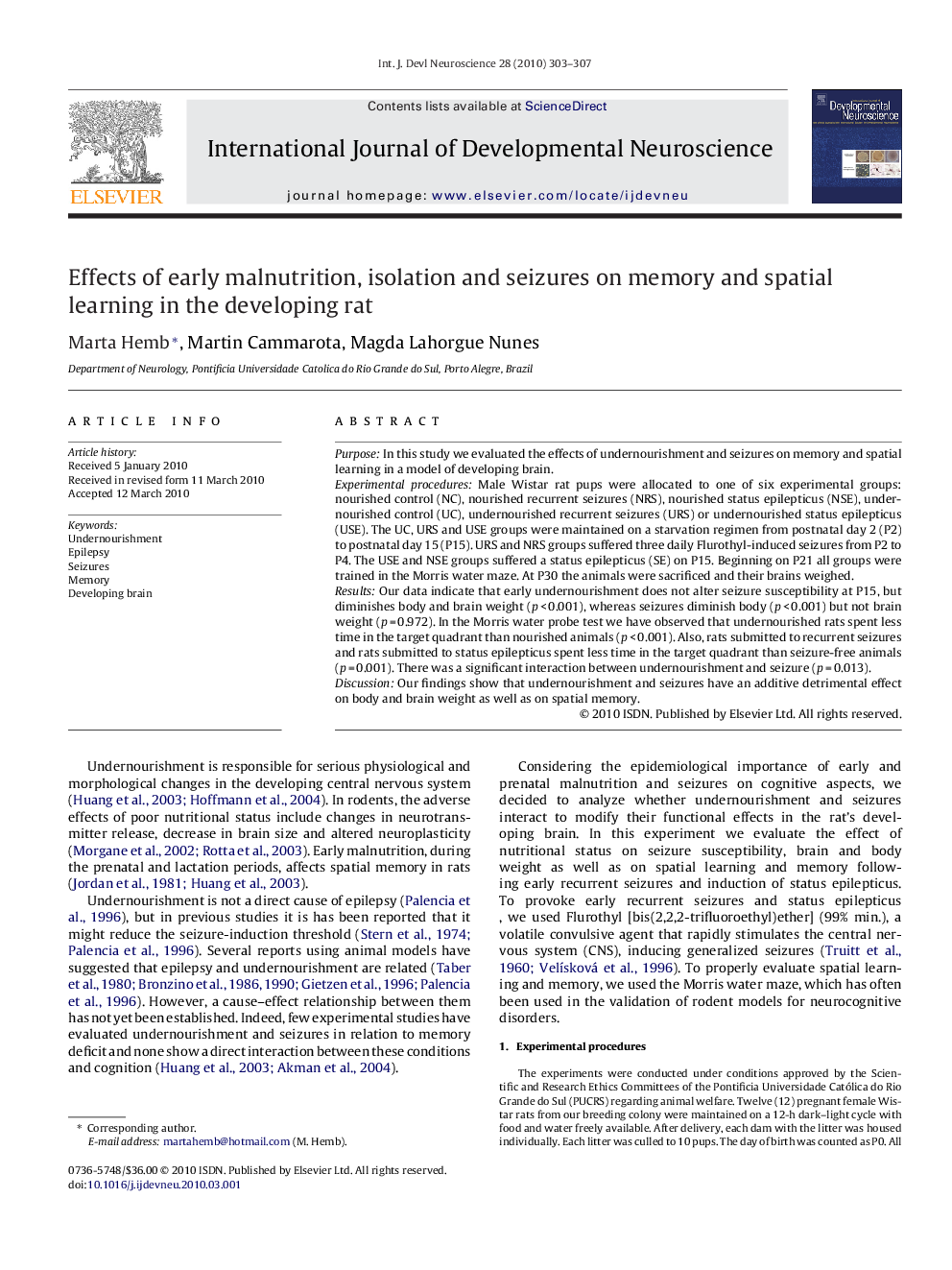| Article ID | Journal | Published Year | Pages | File Type |
|---|---|---|---|---|
| 2786751 | International Journal of Developmental Neuroscience | 2010 | 5 Pages |
PurposeIn this study we evaluated the effects of undernourishment and seizures on memory and spatial learning in a model of developing brain.Experimental proceduresMale Wistar rat pups were allocated to one of six experimental groups: nourished control (NC), nourished recurrent seizures (NRS), nourished status epilepticus (NSE), undernourished control (UC), undernourished recurrent seizures (URS) or undernourished status epilepticus (USE). The UC, URS and USE groups were maintained on a starvation regimen from postnatal day 2 (P2) to postnatal day 15 (P15). URS and NRS groups suffered three daily Flurothyl-induced seizures from P2 to P4. The USE and NSE groups suffered a status epilepticus (SE) on P15. Beginning on P21 all groups were trained in the Morris water maze. At P30 the animals were sacrificed and their brains weighed.ResultsOur data indicate that early undernourishment does not alter seizure susceptibility at P15, but diminishes body and brain weight (p < 0.001), whereas seizures diminish body (p < 0.001) but not brain weight (p = 0.972). In the Morris water probe test we have observed that undernourished rats spent less time in the target quadrant than nourished animals (p < 0.001). Also, rats submitted to recurrent seizures and rats submitted to status epilepticus spent less time in the target quadrant than seizure-free animals (p = 0.001). There was a significant interaction between undernourishment and seizure (p = 0.013).DiscussionOur findings show that undernourishment and seizures have an additive detrimental effect on body and brain weight as well as on spatial memory.
